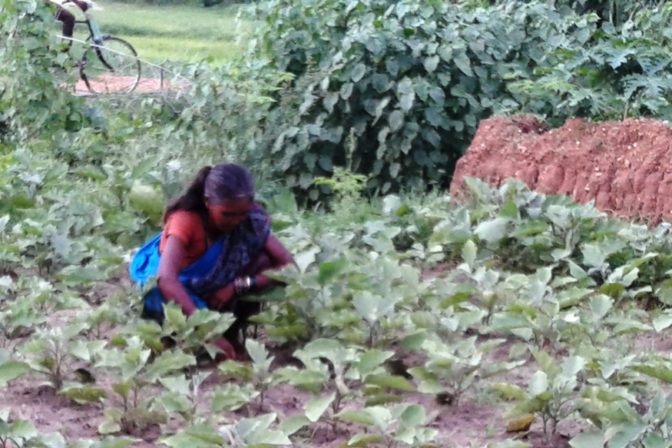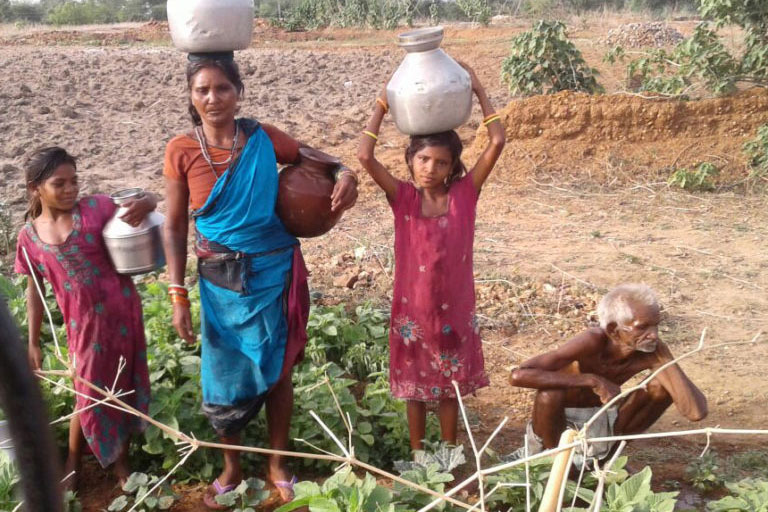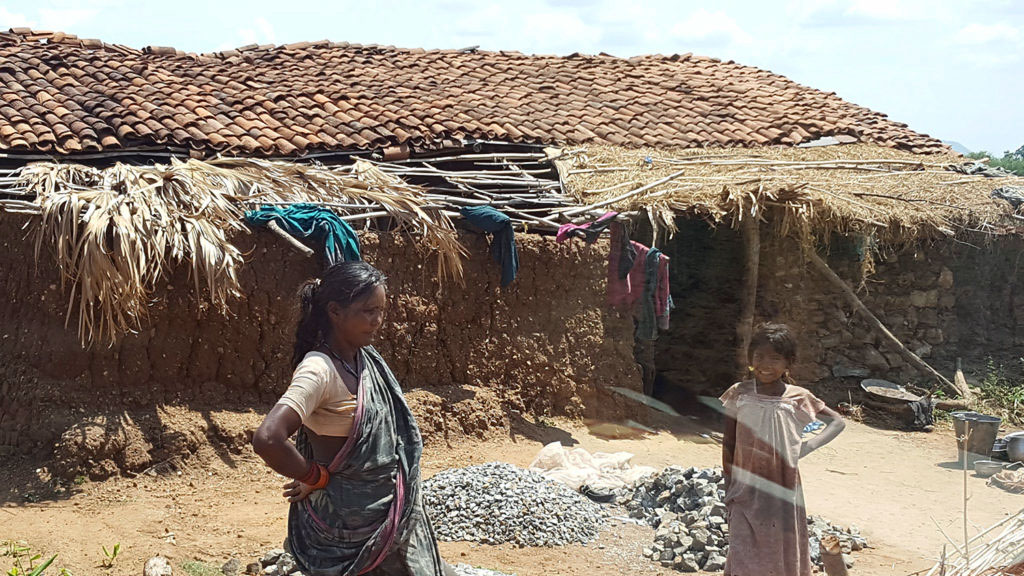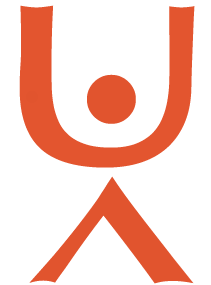Dhondimahul is one of the poorest and most remote communities in Mundpadar, Odisha. Many of the families migrate for much of the year to find work as wage laborers, and agriculture is the primary source of income.
Sukamani Patel’s family is one of the poorest in the village, as they have no productive assets or resources, and don’t even own the land on which they constructed their home in the outskirts of the village. Their primary occupation was wage labor, but then her husband Hrusikesh Patel was paralyzed and now can’t work at all. Suddenly, Sukamani was responsible for bringing in the lion’s share of the family’s income and managing daily expenses. With five small children to care for and no opportunities to work as a wage laborer in the community, she began going door to door to beg with her children. When Trickle Up and our partner Odisha Livelihoods Mission (OLM) brought our program to Dhondimahul community, Sukamani was selected as a participant.
Project staff made several visits to her household to encourage Sukamani to join the project and become a member of the self-help group (SHG), or savings group.
Initially, she declined to participate, as she didn’t have any resources to save at the start and was afraid to save at all. But after regular visits from a coach, constant motivation, and explanation about the benefits of the SHG, saving, different government programs, and the program’s seed capital grant to start a new livelihood activity, she gradually became interested in joining the SHG. Finally, she joined the newly formed Maa Tarini SHG in Dhondimahul. At first, Sukamani was unable to save anything in the SHG and couldn’t attend meetings regularly because she spent all of her time trying to earn enough to cover her family’s expenses.

At the beginning of the project, Sukamani worked as a wage laborer, and sometimes was hired to sell others’ vegetables in the market. She told her coach she was interested in cultivating vegetables for her new livelihood activity. The project had just begun and she hadn’t developed a livelihood plan yet, but because of her particularly vulnerable and precarious situation, the project staff encouraged her to take a $3 (200 Rs) loan from the SHG to immediately start cultivating leafy greens. She bought seeds and prepared the soil outside of her house to start growing leafy greens and pumpkin, using water from a pond near her home. In the meantime, she and her coach developed livelihood and investment plans. She sold her first crop of vegetables door-to-door in another community, earning $23 (1500 Rs).
With this income, she repaid the loan, began to save in the group, and continued cultivating vegetables on a regular basis.
Then, her SHG received $231 (15,000 Rs) from the Pro Poor Investment Fund (PPIF) of OLM to invest in their livelihoods. Sukamani received $31 (2000 Rs) from this fund, and per her plan, she began cultivating eggplant and cowpeas. Soon after, she also received her Trickle Up seed capital of $23 (1500 Rs) in her newly opened personal bank account. With the advice and guidance of her coach, she began selling her vegetables door-to-door and in local markets on a regular basis. From her daily vegetable vending, she earns $1 (60-70 Rs) in profit each day.
Despite her family’s poverty, which qualified them for government services, they hadn’t been given a ration card through the Public Distribution System (PDS). After continuous dialogue and advocacy, she eventually obtained a ration card which entitles her to receive 35 kg of rice each month. In February 2017, her group was allocated another $770 (50000 Rs) from the government’s Community Investment Fund (CIF), and she took a $77 (5000 Rs) loan to purchase two goats.

Today, Sukamani has become an example to others.
She has become self-sufficient and created a better life for her family with help from the Trickle Up-OLM program, even though she started from a critical condition. She now saves in the SHG regularly and today has $19 (1260 Rs) in savings. After initially saving just $0.15 (10 Rs) weekly in the SHG, she can now afford to save $0.30 (20 Rs) or more per week and she’s able to send her children to school. In addition, her family eats better and more regularly because of her vegetable garden. We look forward to seeing Sukamani’s prosperity continue to thrive and sustain her family for years to come.



